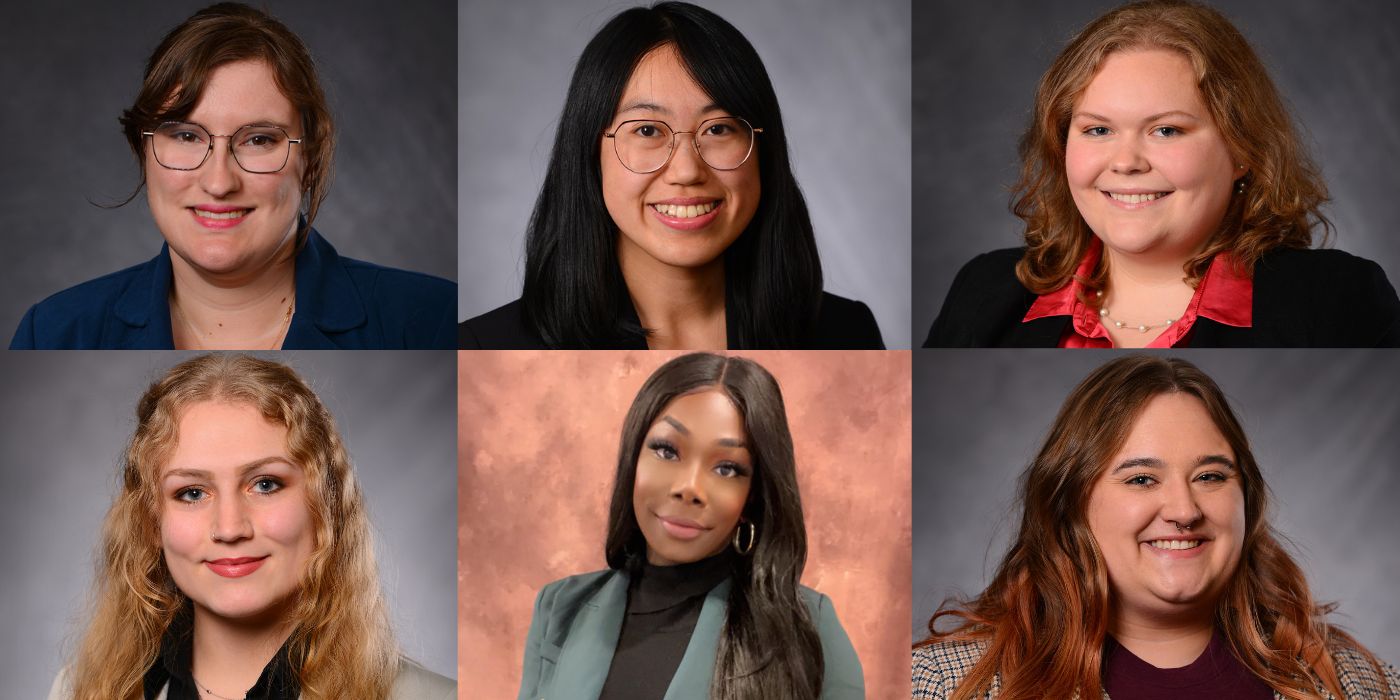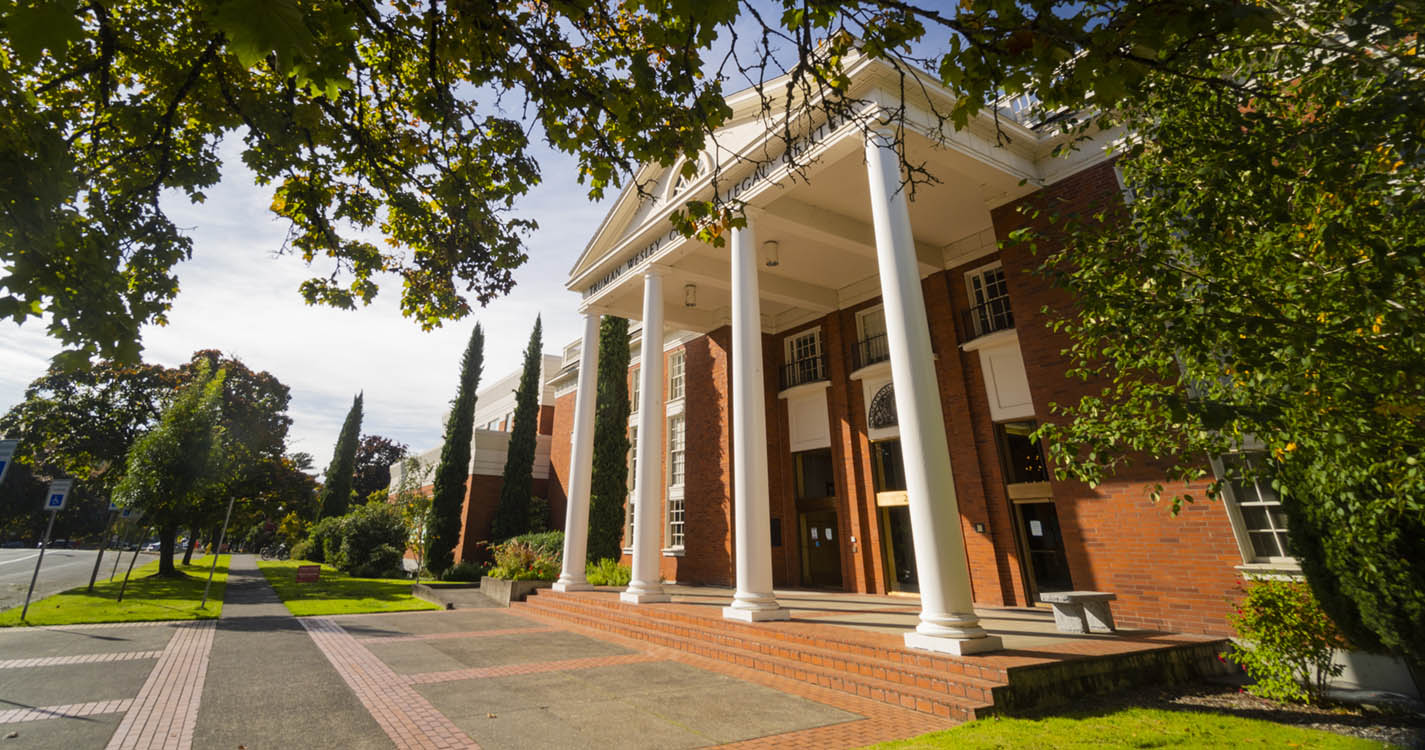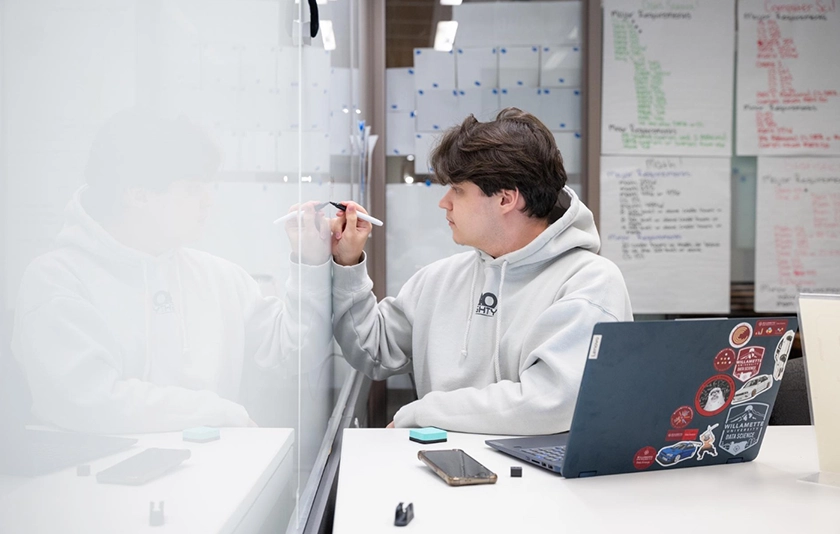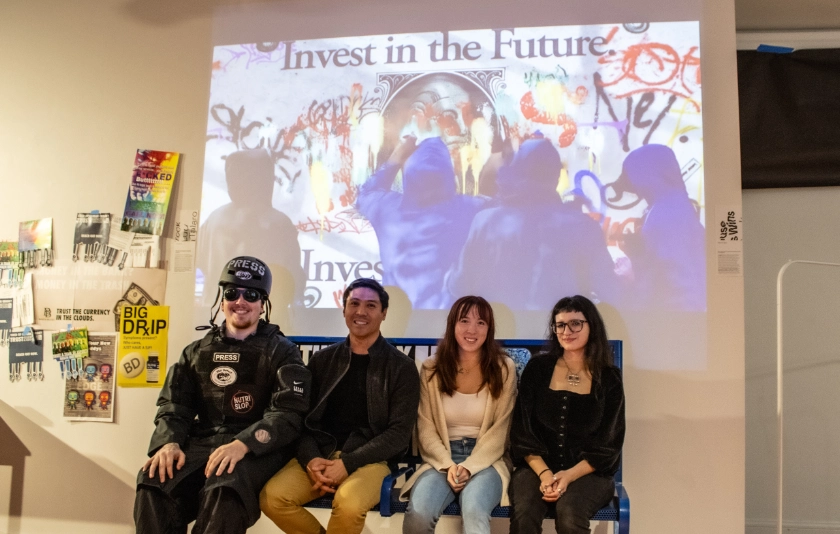Each summer, the Willamette University Public Interest Law Project (WUPILP) provides transformative fellowship opportunities for law students, empowering them to step into roles that make a difference in the community. Through its summer fellowships, WUPILP provides the financial support necessary for students to pursue their passions in public interest law, working with organizations that often go underfunded and understaffed.
WUPILP is a student-run organization aimed at educating future lawyers about the opportunities and need for involvement in public interest law. Its mission is to educate law students on inequities in the legal system and encourage future lawyers to dedicate their professional lives to the development of a more just society.
This year, six students were selected for fellowships, each making strides toward change while gaining invaluable experience that will shape their future careers.
Jane Miramontes-Somerville
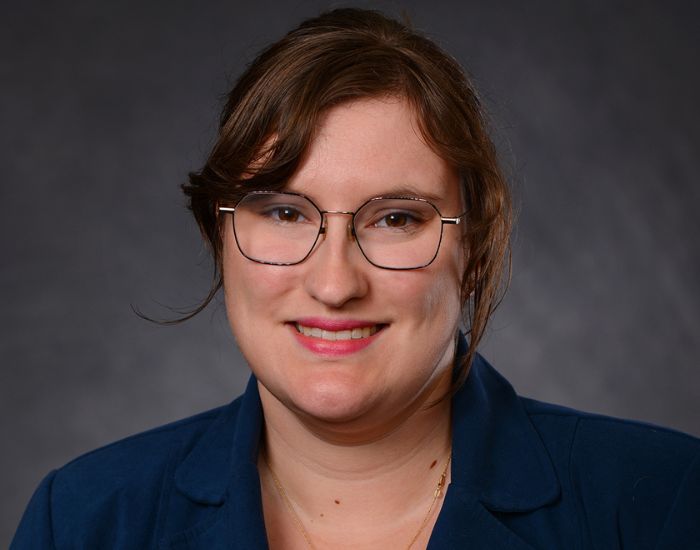 As a WUPILP fellow, Jane Miramontes-Somerville JD’26 spent the summer working in the appellate division of the Oregon Public Defense Commission (OPDC), an agency within the Oregon Judicial department responsible for ensuring criminal defendants across the state receive their constitutional right to counsel.
As a WUPILP fellow, Jane Miramontes-Somerville JD’26 spent the summer working in the appellate division of the Oregon Public Defense Commission (OPDC), an agency within the Oregon Judicial department responsible for ensuring criminal defendants across the state receive their constitutional right to counsel.
In the appellate division, defendants who lost at trial and wish to appeal the decision receive assistance navigating the complex appeals process. Miramontes-Somerville collaborated with attorneys to research key legal issues presented and contributed to drafting briefs for the court. She also tracked newly published court opinions, keeping the team informed of relevant legal changes. Through this hands-on experience, she deepened her knowledge of the appellate process, honed her writing skills, and benefitted from working closely with a supportive team.
Miramontes-Somerville emphasizes the importance of fellowships in helping aspiring lawyers pursue their passion. “There is a huge shortage of lawyers in public interest fields, especially public defense, so it is important that law students spend their time where it really counts,” she says. This fellowship was valuable for Miramontes-Somerville as she aspires to work in appellate law or public defense after graduation.
Leyna Quach
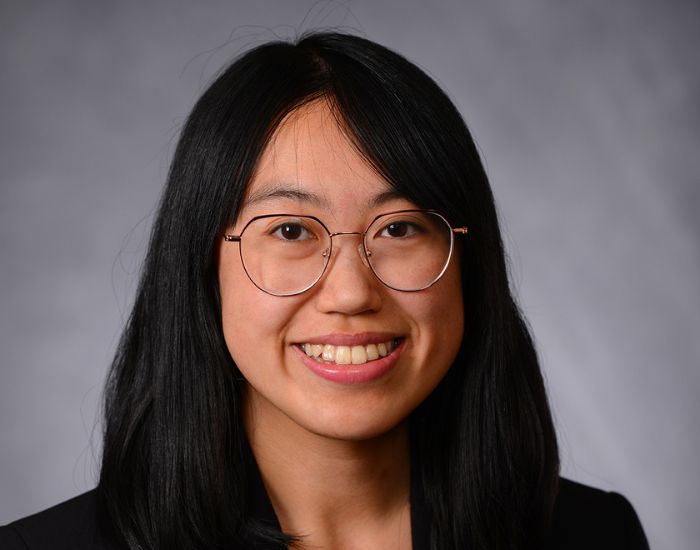 Leyna Quach JD’26 spent her summer clerking for Court Appointed Special Advocates for Children (CASA) of Marion County, a nonprofit organization dedicated to advocating for children in foster care. Her time at CASA provided her with valuable insights into dependency court and the workings of child welfare. As a clerk, Quach attended court proceedings and oversaw administrative tasks around the office.
Leyna Quach JD’26 spent her summer clerking for Court Appointed Special Advocates for Children (CASA) of Marion County, a nonprofit organization dedicated to advocating for children in foster care. Her time at CASA provided her with valuable insights into dependency court and the workings of child welfare. As a clerk, Quach attended court proceedings and oversaw administrative tasks around the office.
However, the most important aspect of her role was, as she describes, to “provide a voice for the child.” Quach represented the best interests of the child in court by providing in-depth, first-hand, documented information to judges, attorneys, and social workers, helping them make informed decisions in each case. The experience not only deepened Quach’s understanding of the legal system and the public interest field, but also allowed her to see first-hand how a courtroom really works.
“Now, when I go into a courtroom to represent a client, I already have a leg up in knowing the proper etiquette and process,” she explains. Quach sees the importance of public interest fellowships in giving law students the opportunity to explore different areas of law without the financial burden. Through the WUPILP fellowship, she believes “students have the chance to advocate for justice, promote equity, and contribute to positive social change.”
Evelyn Roehn
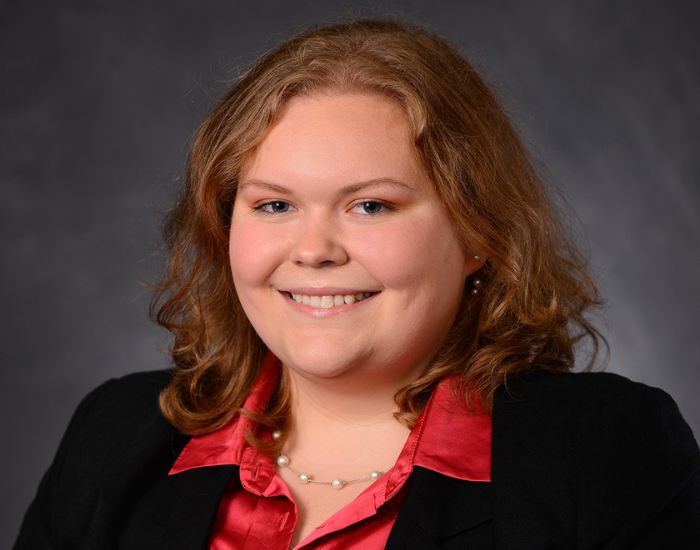 This summer, Evelyn Roehn JD’26 served as a legal intern for the Oregon Innocence Project (OIP), an organization committed to addressing wrongful convictions and post-conviction relief. Roehn spent her time reviewing discovery materials, trial transcripts, court filings, and conducting legal research on various cases.
This summer, Evelyn Roehn JD’26 served as a legal intern for the Oregon Innocence Project (OIP), an organization committed to addressing wrongful convictions and post-conviction relief. Roehn spent her time reviewing discovery materials, trial transcripts, court filings, and conducting legal research on various cases.
Roehn says that her favorite part of the experience was “claiming ownership over every case assignment.” The in-depth analysis of each case allowed her to feel like an expert by the end, deepening her engagement with the work. With every case she handled, Roehn’s passion for justice grew as she witnessed OIP's impact firsthand and spoke with individuals who had been successfully exonerated.
Aspiring to become a public defender, Roehn found the experience invaluable for understanding what went wrong in individual cases. “This internship taught me what makes a stronger, well-prepared attorney and how to navigate the criminal justice system better when the odds are stacked against you,” she explains. Roehn firmly believes that every law student would benefit from engaging in public interest work to witness firsthand the critical, yet often underappreciated, areas of law.
“Oregon is in a crisis for public defenders, by getting to immerse myself in the problem we are facing, I can better understand why this work matters and how to advocate for change,” Roehn says.
Kylie Root
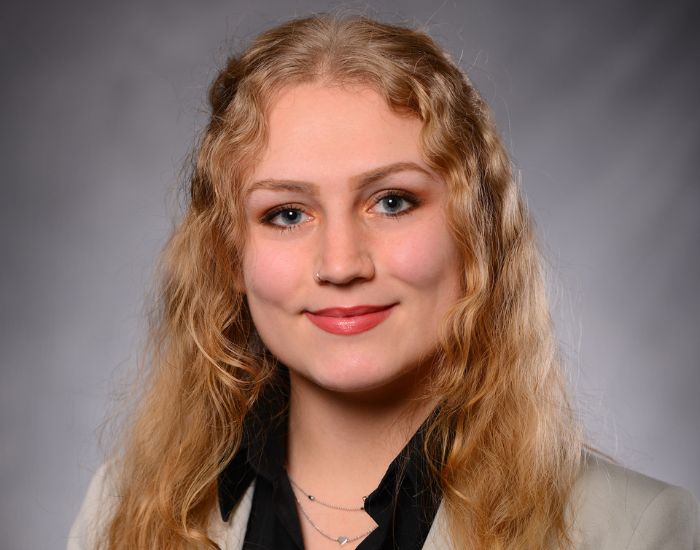 Kylie Root JD’25 spent her summer working for the OPDC appellate division, where she focused on honing her research and writing skills. Each week, she was tasked with reading and briefing cases from the Oregon Supreme Court, Oregon Court of Appeals, or 9th Circuit Court of Appeals, which were then used to inform and update trial attorneys. Prior to this fellowship, Root's legal experience was primarily in trial work. This opportunity allowed her to gain valuable insight into the appellate side of public defense, broadening her legal expertise.
Kylie Root JD’25 spent her summer working for the OPDC appellate division, where she focused on honing her research and writing skills. Each week, she was tasked with reading and briefing cases from the Oregon Supreme Court, Oregon Court of Appeals, or 9th Circuit Court of Appeals, which were then used to inform and update trial attorneys. Prior to this fellowship, Root's legal experience was primarily in trial work. This opportunity allowed her to gain valuable insight into the appellate side of public defense, broadening her legal expertise.
Root pursued the fellowship with the hope that learning more about the appellate process would help prepare her to be a better trial lawyer and equip her with the experience and skills necessary to succeed as a public defender. She recognizes the importance of public interest fellowships in providing law students the ability to engage in meaningful public interest work. From personal experience, Root has seen the limitations that unpaid internships can impose on students interested in public interest work.
“I know that it can be a hindrance for many of my colleagues,” Root says. “Enabling students to work within this necessary field of law through a fellowship is a significant way to not only encapsulate the nature of public interest, but also to support students, like me, in achieving their goals.”
Ja’Terra Scott
 Ja’Terra Scott JD’26 was particularly thrilled about her summer opportunity to clerk for the Oregon Court of Appeals. “As a Black transgender law student with a lifelong passion for learning, I cannot pick one lane of law I am sure I will practice,” she shares. This fellowship gave her the chance to explore a wide range of legal areas, from criminal cases to contract disputes—an opportunity that she acknowledges is often out of reach for members of her community without the support of public interest fellowships.
Ja’Terra Scott JD’26 was particularly thrilled about her summer opportunity to clerk for the Oregon Court of Appeals. “As a Black transgender law student with a lifelong passion for learning, I cannot pick one lane of law I am sure I will practice,” she shares. This fellowship gave her the chance to explore a wide range of legal areas, from criminal cases to contract disputes—an opportunity that she acknowledges is often out of reach for members of her community without the support of public interest fellowships.
Scott approached the fellowship with a strong desire to develop her lawyering skills, particularly in crafting compelling arguments, honing her research abilities, and refining her writing. Additionally, she was eager to engage with the esteemed judges of the Oregon Court. As Scott points out, WUPILP fellowships “allow students to pursue more meaningful and purposeful summer positions serving those who need it most.” Thanks to this fellowship, she was able to spend the summer dedicated to work she is deeply passionate about.
The experience has not only reaffirmed Scott's decision to attend law school but has also strengthened her commitment to pursuing a legal career — a dream she has nurtured since childhood. “My desire to serve my community has never been stronger, and the access and opportunities afforded to me as a law student (and future attorney) are unparalleled,” Scott reflects.
Spencer Wollan
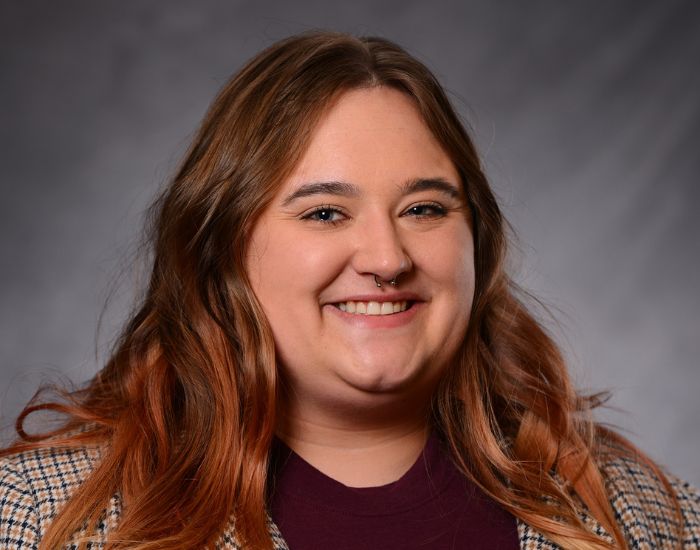 This summer, Spencer Wollan JD’25 took on a crucial role as a Certified Law Student at the Federal Public Defender (FPD) in Portland, Oregon, where she helped to defend the rights of low-income individuals within the federal criminal system. In her role as a clerk, Wollan honed her legal skills by engaging in intricate research and writing for complex appellate-level cases, meticulously reviewing evidence and discovery materials, drafting critical motions, and acquiring essential client interview techniques.
This summer, Spencer Wollan JD’25 took on a crucial role as a Certified Law Student at the Federal Public Defender (FPD) in Portland, Oregon, where she helped to defend the rights of low-income individuals within the federal criminal system. In her role as a clerk, Wollan honed her legal skills by engaging in intricate research and writing for complex appellate-level cases, meticulously reviewing evidence and discovery materials, drafting critical motions, and acquiring essential client interview techniques.
Throughout her fellowship, Wollan aimed to gain a deep understanding of the federal criminal justice system, master the art of managing multiple projects simultaneously, and refine her ability to integrate creative written and oral advocacy skills. Additionally, she aspired to “learn not just how to be an assiduous attorney, but how to build stamina to continue doing so without running into burnout,” she says, recognizing the importance of maintaining patience with oneself and others in the demanding field of public defense.
For this reason, she views public interest fellowship opportunities as particularly important for law students. “Programs that serve clients most in need tend to be without the wide breadth of resources that are used by larger firms to attract law students looking for summer opportunities,” she reflects. Wollan acknowledges that the legal system heavily depends on public interest organizations to combat injustices and uphold the constitutional rights and dignity of all individuals.
